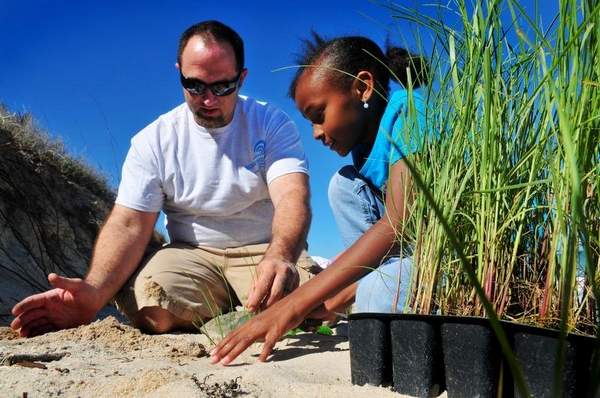Government Grants
Business Grants
Home Owner Programs
Federal Programs
About Us
RFI - Identifications and Quantification of Electronic Waste (e-waste) in Municipal Solid Waste Systems
This is a Request for Information (RFI).
No Funding Opportunity Announcement (FOA) exists at this time.
The purpose of this RFI is to solicit input for ARPA-E consideration for potential future ARPA-E research programs focused on highly energy efficient conversion of e-waste into usable
manufacturing materials.
ARPA-E is interested e-waste management/conversion ideas across the entire supply chain of e-waste and its impact on municipal solid waste, including classification, collection, identification, sorting, and reclamation of materials.
Such e-waste reclamation research and development could result in the development and deployment of advanced energy technologies, enhancing the economic and energy of the United States, while reducing imports of foreign-sourced energy, and reduction of energy-related emissions.
According to the U. S. Environmental Protection Agency (EPA), Municipal Solid Waste (MSW)[1](also called trash or garbage) consists of daily items such as product packaging, yard trimmings, furniture, clothing, bottles and cans, food, newspapers, appliances, electronics, and batteries.
Sources of MSW include residential waste and waste from commercial and institutional locations, such as businesses, educational institutions, and hospitals.
The appliances and electronics waste within the MSW stream are broadly classified as electronic waste often referred to as e-waste or e-scrap.
While the definition of e-waste is quite complex, the widely adopted definition in different e-waste studies is by the European Union Waste Electrical and Electronic Equipment (EU WEEE) directive, defined as “Electrical and Electronic Equipment (EEE) which is waste, including all components, sub-assemblies, and consumables, which are part of the product at the time of discarding”.
It encompasses six different categories as per International Telecommunication Union[3].
They are listed below.
Each product of the six e-waste categories has a different lifetime profile leading to different waste quantities, economic values, and potential environmental and health impacts, if recycled inappropriately.
Evidently, the logistical processes including, and recycling technology differ for each category, in the same way as the consumers’ attitudes when disposing of the electrical and electronic equipment also vary.
To read the complete RFI, please visit https://arpa-e-foa.energy.gov.
No Funding Opportunity Announcement (FOA) exists at this time.
The purpose of this RFI is to solicit input for ARPA-E consideration for potential future ARPA-E research programs focused on highly energy efficient conversion of e-waste into usable
manufacturing materials.
ARPA-E is interested e-waste management/conversion ideas across the entire supply chain of e-waste and its impact on municipal solid waste, including classification, collection, identification, sorting, and reclamation of materials.
Such e-waste reclamation research and development could result in the development and deployment of advanced energy technologies, enhancing the economic and energy of the United States, while reducing imports of foreign-sourced energy, and reduction of energy-related emissions.
According to the U. S. Environmental Protection Agency (EPA), Municipal Solid Waste (MSW)[1](also called trash or garbage) consists of daily items such as product packaging, yard trimmings, furniture, clothing, bottles and cans, food, newspapers, appliances, electronics, and batteries.
Sources of MSW include residential waste and waste from commercial and institutional locations, such as businesses, educational institutions, and hospitals.
The appliances and electronics waste within the MSW stream are broadly classified as electronic waste often referred to as e-waste or e-scrap.
While the definition of e-waste is quite complex, the widely adopted definition in different e-waste studies is by the European Union Waste Electrical and Electronic Equipment (EU WEEE) directive, defined as “Electrical and Electronic Equipment (EEE) which is waste, including all components, sub-assemblies, and consumables, which are part of the product at the time of discarding”.
It encompasses six different categories as per International Telecommunication Union[3].
They are listed below.
Each product of the six e-waste categories has a different lifetime profile leading to different waste quantities, economic values, and potential environmental and health impacts, if recycled inappropriately.
Evidently, the logistical processes including, and recycling technology differ for each category, in the same way as the consumers’ attitudes when disposing of the electrical and electronic equipment also vary.
To read the complete RFI, please visit https://arpa-e-foa.energy.gov.
Related Programs
Advanced Research and Projects Agency - Energy Financial Assistance Program
Department of Energy
Agency: Department of Energy
Office: Advanced Research Projects Agency Energy
Estimated Funding: $32,000,000
Office: Advanced Research Projects Agency Energy
Estimated Funding: $32,000,000
Who's Eligible
Obtain Full Opportunity Text:
ARPA-E eXCHANGE
Additional Information of Eligibility:
Eligibility is open to international and Pakistan-based non-profit organizations.
Organizations may sub-award or sub-contract with other entities, but only one non-profit organization can be the prime recipient of the award.
Pakistan government entities are not eligible to apply.
For-profit entities are not eligible to be the prime recipient of an award under this NOFO.
When sub-awarding or sub-contracting with other entities, the responsibilities of each entity must be clearly defined in the proposal.
The applicants must submit proof of their non-profit status with their proposal submission (e.g.
proof of 501(c) (3) status, Pakistan NGO license).
Applications that do not include proof of non-profit status will not be considered for an award.
Individuals are not eligible for an award under this NOFO.
U.S.-based or registered organizations should provide proof of registration to operate in Pakistan or have a documented agreement with a partner organization registered to operate in Pakistan.
Please refer to Section D for funding restrictions.
Full Opportunity Web Address:
https://arpa-e-foa.energy.gov
Contact:
Agency Email Description:
ARPA-E CO
Agency Email:
Date Posted:
2020-04-30
Application Due Date:
Archive Date:
2020-09-05
Social Entrepreneurship
Spotlight
Building a Million Dollar Company Where Everyone Counts

Ganesh Natarajan is the Founder and Chairman of 5FWorld, a new platform for funding and developing start-ups, social enterprises and the skills eco-system in India. In the past two decades, he has built two of India’s high-growth software services companies – Aptech and Zensar – almost from scratch to global success.

